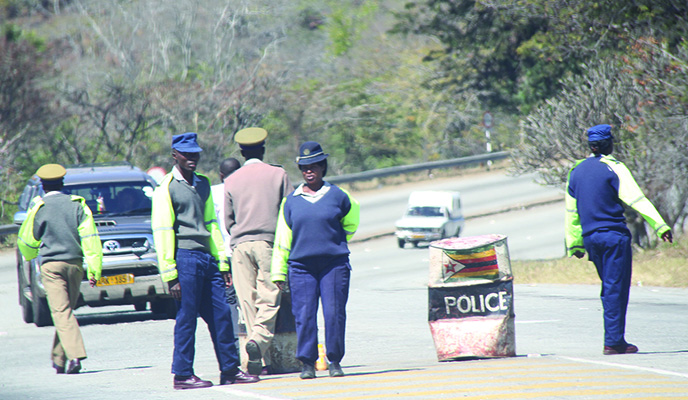By Tendai Kamhungira
In a major development that will give relief to thousands of motorists who complain about the random and unrelenting harassment at roadblocks, police have admitted that they have no right to force drivers to pay spot fines.

This followed a High Court ruling on Wednesday which established that there was no law that allowed police to confiscate licences and impound vehicles of drivers who refused to pay spot fines.
At the same time, police Commissioner General Augustine Chihuri has called for steep increases in spot fines, which he said would curb Zimbabwe’s worsening road carnage and reckless driving.
In the High Court application filed by Andrew Makunura, who was represented by Tonderai Bhatasara, in which he sought an order barring police from demanding spot fines, and that he be given back his driver’s licence, police made the welcome concession that paying spot fines was optional.
Judge Esther Muremba subsequently ruled that spot fines were illegal.
“In their plea, the defendants (including Home Affairs minister Ignatius Chombo and Chihuri) denied that when the plaintiff failed to pay the spot fine he was detained or compelled to pay it as paying a spot fine is optional to motorists who are willing to do so.
“The defendants averred that spot fines have already been declared to be unconstitutional in terms of the old Constitution and as such they (defendants) have no reason to disrespect the law,” Muremba noted.
“The defendants made an admission that the confiscation of a driver’s licence at roadblocks to compel motorists to pay spot fine abrogates Sections 49, 66, 69 (1) and (3, 86 (3) (e) and 71 of the Constitution of Zimbabwe.
“As a result police officers are allowed to accept fines from motorists at roadblocks if motorists are admitting to the offences and are willing to pay the fine to save themselves from the trouble of having to pay the fine later or from having to appear in court on a subsequent date to answer to the charges that they are already admitting to.
“What is illegal is for police officers at roadblocks to force motorists to pay spot fines against their will,” Muremba added.
“Compelling motorists who are disputing the offence to pay fines against their will infringes their right to a fair hearing before an independent and impartial court.
“It means that they are arrested by the police, tried by the police, convicted by the police and sentenced by the police without being given an opportunity to present their case or their side of the story to a person who has no interest in the matter and is therefore not biased,” Muremba said further.
In February 2015, another High Court judge, Justice Francis Bere had also ruled that there was no legal framework or law which compelled motorists to pay spot fines, or which empowered the police to impound someone’s motor vehicle.
In Makunura’s case, his driver’s licence was confiscated by police after he failed to pay a $10 fine for not possessing a radio licence.
In his court application, he argued that the demand for spot fines was illegal and inconsistent with the Constitution.
“The demand of payment of a fine on the spot is legally not supportable and constitutionally impermissible. To compound it, the manner in which respondents go about administering the spot fines regime abrogates the right to a fair trial among others,” Makunura had argued.
Meanwhile, Chihuri told legislators on Thursday that the government must hike spot fines to stem both road carnage and crime, including drunken driving. Daily News






